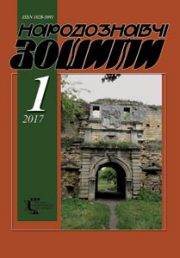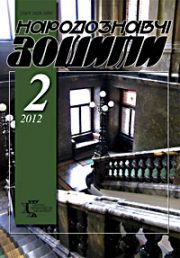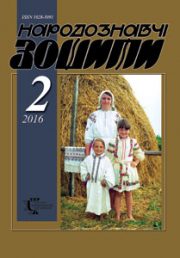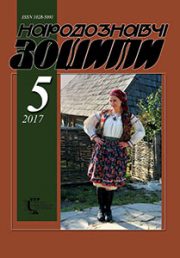The Ethnology Notebooks. 2017, 6 (138), 1578—1583
UDK 659.1
DOI https://doi.org/10.15407/nz2017.06.1578
Received 5.10.2017
IDENTIFYING THE PRINCIPLES OF ADVERTISING IN THE SUBJECTSPATIAL ENVIRONMENT OF CITIES
Sosnytskyi Yurii, lecturer at Kharkiv National University
of Urban Economics named after O.M. Beketov,
a member of the National Union of Artists of Ukraine,
Marshal Bazhanov Str., 17, Kharkiv, 61002, Ukraine
Contacts: Tel. (057) 707-33-14; e-mail: office@kname.edu.ua
Abstract. The article deals with an imperfect approach to the objects` organization of advertising in the space of Kharkov, leading to an indepth analysis and study of modern world cities. The identification of practical techniques for the implementation and synthesis of advertising objects with historical and modern urban space leads to their further systematization on the principle of organic synthesis with the environment. Conclusions of this theoretical analysis will become a springboard for a new assessment and rethinking the state of the existing advertising space of Kharkiv with the subsequent improvement of its both aesthetic and functional qualities.
Keywords: design, advertising, advertising space, design object, objectspatial environment, principles and methods of organization.
REFERENCES
Genisaretskij, O.I. (1987). Prostranstvo — dlja nas. Tehnicheskaja jestetika, 4, 28—30. [in Russian]
Danylenko, V.Ya. (2005). Dyzajn Ukrainy u svitovomu konteksti khudozhn’o-proektnoi kul’tury. Kharkiv : Koloryt. [in Ukrainian]
Serheieva, N.V. (2008). Ob’iekty mediadyzajnu v konteksti formuvannia hromads’koho seredovyscha mista (Dr. arthist. diss. abstr.). Kharkiv. [in Ukrainian]
Sidorenko, V.F. (1978). Problema hudozhestvennogo obraza v dizajne. In Problemy obraznogo myshlenija v dizajne (Vol. 17). Moskva : VNIITE. [in Russian]







